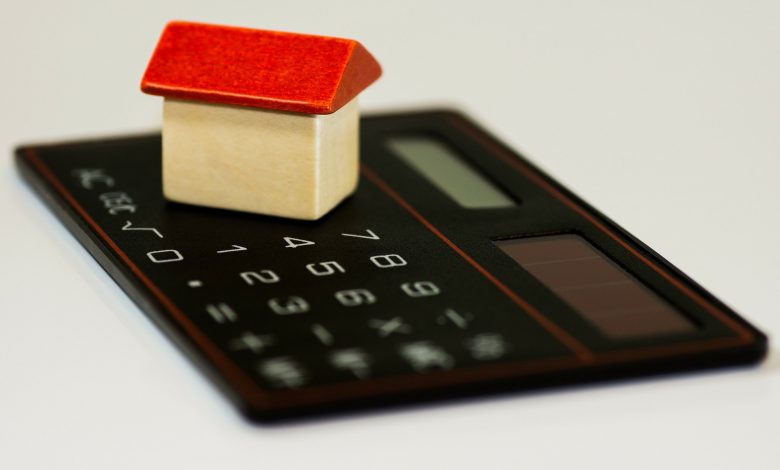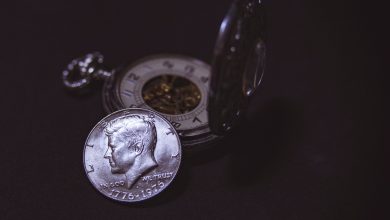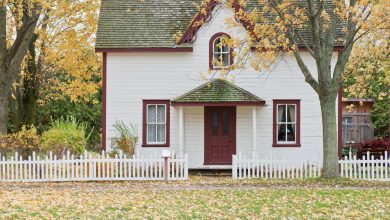Retiring Without a Mortgage: Is It A Possibility?

Wouldn’t it be great if you don’t have to make mortgage payments after retirement? When you don’t have to deal with the mortgage, you get to spend more money on the things you love doing. And you can peacefully enjoy living a retired life. For many people, this may seem like a wild dream. But it’s not an impossible feat; it can be achieved.
Owning a home is on the top of to-do lists for many Americans. As a homeowner, you get to enjoy a lot of benefits from financial institutions. You also get to have a better savings plan.
There’s nothing wrong with wanting to own a beautiful home. But there is one question. Will you enjoy making mortgage payments after retirement?
Today, the number of Americans who pay mortgage fees after retirement is increasing. According to one survey, at least 44% of retired homeowners aged between 60-70 retirees are still struggling to pay off their mortgage.
The best thing you can do to avoid retiring with lots of debts is to pay off your loan before you retire. However, it’s easier said than done. There are quite a lot of things you should consider to make it happen. Let us now discuss the good side of retiring the mortgage ahead of schedule.
Why Clear Your Debts Before Retirement?
A lot of studies suggest that it’s best to pay off the mortgage before retirement, and the reasons are quite distinct. Most of us don’t like the idea of carrying a debt until retirement. It’s a burden we don’t want to carry.
Kevin O’ Leary, the co-host of Shark Tank once said that, if you desire financial freedom, clearing all your debt before retirement is necessary – mortgage included.
If you are financially stable while you’re still working and you have enough cash to pay your mortgage ahead of schedule, but you decided not to, you need to remember that you could be at higher risk by choosing to invest with the loan money.
This may work for some individuals who are already into business and are familiar with investment or business strategies. But it’s not the same for the remaining majority. Generally, the best option is to retire without carrying any sort of debt, especially mortgage debt.

Here are the reasons why you should consider paying your home loan in advance.
Enjoy a Debt-Free Retirement
When you retire without debt, you get to enjoy a debt-free life with whatever amount of money you have saved. Some retirees may have a lot of money when they retire. But much of their savings are spent on paying their loans, and they even run short of emergency funds or their living expenses. You will not have to face this predicament.
Avoid Paying More Taxes
Retiring with a mortgage means you would have to withdraw more money from your retirement fund to meet your living expenses and to pay the debt. The more money you withdraw, the more tax you would have to pay.
This can be avoided by paying off the mortgage before retirement. For this reason, most financial planners advise their clients to be free from debt while they’re still working.
Efficiently Manage Your Finances
A mortgage is the most substantial debt for many people. By eliminating it, you get to manage other expenses. For example, health care costs and utility bills may increase over time. But with the mortgage eliminated from the retirement budget, you can better manage your finance.
Besides, by reducing your most considerable debt, you need not worry too much when you retire.
Save More Money for the Future
Paying off your debt while you’re still working will allow you to save more money. With all your debts paid, you can redirect your extra dollars towards your emergency fund, or retirement fund.
How to Pay Your Mortgage Early
Get a Green Signal from the Lender/Bank
To start paying your mortgage debt, make sure that the bank will not penalize you for making an early payment.
Make an Extra Payment
If your financial situation allows you, then consider making an additional payment each month or at least four to five times a year. Doing this will reduce the number of years you have to deal with your home loan debt.
Talk to a Financial Advisor
There is a good reason why there are professionals, the financial advisors in this case. If you want to retire your mortgage early, but you can’t handle your finances effectively, try talking to a financial advisor. They can help you devise a plan to meet your needs.
Note that you don’t necessarily have to do precisely what the financial advisor tells you. You should be wise enough to do what’s right for you. The point is, they may give you new ideas or a different approach that you might be missing out on.
Refinance Your Mortgage
If your mortgage interest rate is low and you want to cut short the loan period, you should refinance your mortgage. For example, if you have a 30 year loan, you can refinance it to a 15 year; meaning, you start paying at the rate of a 15-year mortgage.

How to Retire Without Mortgage Debt
Retiring without a mortgage is possible. But to achieve that, you have to make a few sacrifices. Below are some of the practical things you should follow if you want a comfortable and stress-free retirement.
Find a Smaller Home
Consider moving into a smaller home if you think that you don’t need extra space, such as a separate dining room, spare bedrooms, and a living room. If you can find a small abode for an affordable price, you could avoid taking a loan in the first place.
Relocate to a More Affordable Neighborhood
Relocating to a new place is not so easy, but it’s worth a sacrifice. If you plan on relocating, consider moving into a neighborhood that has a low living cost.
Rent Out the Spare Rooms
Are you living in a large and spacious home with extra bedrooms? If the answer is yes, consider renting the spare rooms. With the rental income, you can manage your utility bills easily. You can even spare some extra cash, which you can use to pay your debts.
What if You Retired with Mortgage Debt?
If you’re one of those people who retired with a home loan, cheer up – it’s not going to cause a financial disaster. Here are some of the things you can do to pay your debts.
Start by making a list of your monthly expenses. This should include both fixed and estimated. Medical expenses, debts, utilities, food, and housing costs are some of the examples. Once you have listed all the expenses, compare it with your income. If it is enough to cover all of your expenses, that’s great. But if your expenses are exceeding your income, try to reduce your spending.
The next step is to identify your debts. Make sure that you don’t have a bad debt, such as a credit card debt. If you happen to have other debts, what’s the interest rate? A mortgage doesn’t usually have a high-interest rate, so you should focus on paying the debt that has a high rate of interest.
You may have to make a few changes to your lifestyle for a couple of months. This can include reducing your travel expenses and spending less on entertainment, etc. Of course, it’s going to be less fun, but it will free you from the burden of carrying high-interest debts.
When to Start Paying the Mortgage
Most Americans start a career in their 20s, and it ends by the time they’re 60 to 65 years old. According to researchers, the best time to start paying off debts is when you attain the age of 40.
Most financial experts, and even some of the most successful businessmen and entrepreneurs, including Dan Lok and Kevin O Leary, are of the view that it is best to have all your debts paid off before you hit 45. According to them, half of your career is over when you’re 45. You’d also be living the rest of your life with the savings you make during the second half of your job.
The earlier you start, the better it is. If you want to commit to paying your mortgage early, start it within the first ten years.
When You Shouldn’t Pay Off Your Mortgage Early
In some cases, you may have to face even more significant challenges by doing so. Paying off a mortgage early might not be your best option if the following factors relate to you.
The interest rate on your mortgage is low.
Have you ever made a calculation taking your mortgage interest rate into account? If you were lucky, then you might have got yourself an excellent deal, which means the interest rate was much lower when you got the loan.
If this is your case, attempting to pay off the mortgage wouldn’t make much sense. Instead, you should consider investing that money into something that will generate a lot of profit. Real estate is always a good choice.
You have other debt with a higher interest.
For most average Americans, a mortgage is the most substantial and most prioritized debt. However, if you have other debt that has a higher interest rate, a credit card debt, for example, it would be best to retire that debt first.
If this is the case, but you still choose to pay the mortgage first, keep in mind that the interest on the credit debt will keep on increasing. And by the time you make the credit payments, the amount will have doubled.
Also, delaying payment on your credit card can cause a lot of damage to your credit score.
You don’t have enough emergency funds.
It’s a good practice to have enough cash in hand to meet unplanned bills and other unexpected expenses. Let’s say you decided to pay the mortgage with the extra money you had. Then, you’re left without emergency savings.
In this case, you’ll be compelled to stack up against your credit card debt if there is an unfortunate incident. To be on the safe side and stay ready for such events, it is always best to have emergency funds locked up.
There is a prepayment penalty.
Some lenders may impose a penalty for making early payments. This is very common with private lenders.
Before you make your move, go through the terms and conditions of your mortgage.
If this is the case, it makes no sense to consider early repayment. It is best to stick to making the minimum payments – even if it means taking it with you into retirement.
You want to sell or rent your home in the future.
Take your time to think hard on this one. You’ll eventually conclude that paying your mortgage early doesn’t do any good if you plan on selling your home. You can quickly repay the loan with the money you get by selling your priced dwelling. This way, you won’t have to deplete your savings.
Do you want to rent out your home after retirement? If the answer is yes, you need not rush. For example, if you’re retiring in 10 to 15 years, it’s pretty evident that the rental fees will go up by the time you retire. By collecting the rent from the tenants every month, you could quickly pay off your home loan.
This can be an excellent option for homeowners who have a few extra rooms to spare. You can also remain in your home and make extra cash by renting out the spare bedrooms.
You want to invest more.
Are you committed to investing your earnings to maximize your profit? If you agree, you may want to consider not making an early mortgage payment.
Focusing more on repaying the home loan is not a smart move too, as you’d be concentrating all of your energy, time, and resources into one single asset.
So if you’re confident that you can make smart investments that will increase your income, go for it.
The benefits outweigh the cons.
Many retirees think that paying back the mortgage debt after retirement is a lot of trouble. But it doesn’t have to be a worrisome problem. Everyone has a different approach to living.
And yes, all of us have different ways of dealing with finances. If you’re nearing your retirement age, and you have yet to clear your mortgage, don’t worry.
There are some good reasons for retiring with a mortgage. Some of them are listed below.
You’ll get to live in a home you love.
A lot of retirees pay their debt by selling their home. However, it would be a hard one to do if the location is good, it’s a nice neighborhood, and you have your family members and friends living nearby. In this case, you wouldn’t want to give up the home that you love.
Also, if the price of your home is lower than the debt you have, it would be pointless to sell it. Whatever the case is, if you keep the mortgage and you can handle the debt, you get to keep your home.
Enjoy the tax deduction.
If you’re dealing with mortgage debt, each year you’ll receive a small tax deduction. You’ll lose this benefit as soon as your mortgage debt is paid off. Although the deduction is not a significant amount, you get to pay a little less interest each month.
It’s not as bad as a credit card debt.
In most cases, mortgage debt usually has a low-interest rate. On the other hand, credit card debt is much higher, which is usually over 10%. If you have both of these debts and you’re almost at your retirement door, get rid of the credit card debt first.
You avoid higher risks, such as paying rent.
If you’ve invested your extra dollars into the stock market or other profitable projects, instead of using that money to pay off the loan before retirement, you might be able to generate a lot of profits. Doing this will allow you to make better retirement plans, and you won’t have to sell your home. A mortgage usually has a fixed rate, and it will remain constant, so it would be an easy payoff.
However, if you ever have to sell your home and move into an apartment, you’ll face a more significant risk. The apartment rent won’t remain constant, but it will keep on increasing.

Retirement without a mortgage debt is desired by many. Getting rid of it can be tempting, but we do not recommend dumping all of your savings to put your mortgage to rest.
The question of whether it’s best to pay the mortgage or invest in retirement funds has been the subject of debate for many years. And since every individual has a different financial situation, there is no solid answer.
However, you may not enjoy sending a check to your lender every month. If you don’t mind giving up a few luxuries, you can quickly pay your debt. This is ideal because you would depend solely on your retirement funds in the later years.
But again, that depends on your circumstances. Your numbers should help you decide what to do.



